Jute panel in the interior
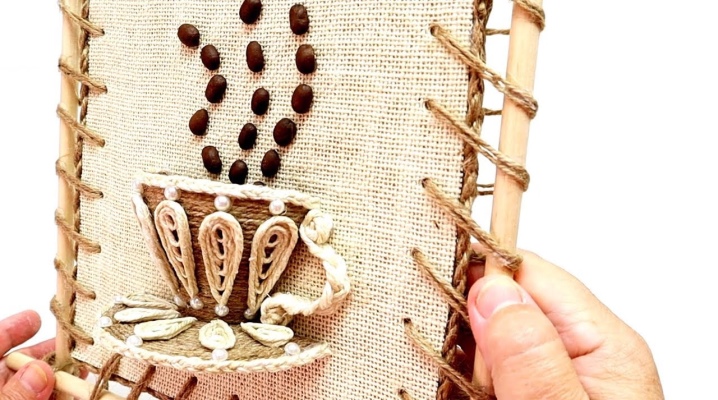
Do-it-yourself home decor can transform the interior, make the atmosphere cozier and more soulful, and its creation does not require special skills and significant financial costs. After spending just a few hours, you will receive a unique decoration for your home and can embody any creative idea, giving the interior a piece of your personality.
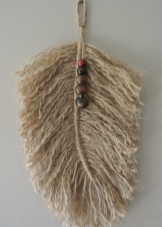
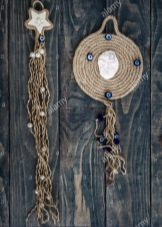
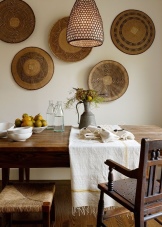
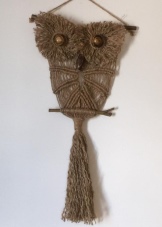
Peculiarities
Jute panels are able to decorate the interior in vintage, Provence, country or other style. It will perfectly fit into the interior, where there are linen curtains or furniture upholstery, elements of burlap and wood, which are also characteristic of the rustic style. The use of jute panels in the ethnic direction is especially relevant - depending on the composition, it can complement the Russian folk, Indian or African style.
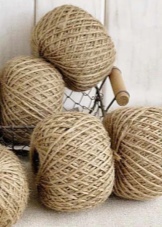
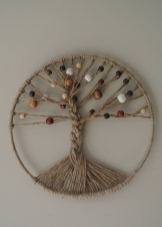
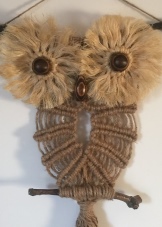
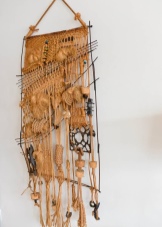
Jute crafts will retain their appearance for many years - they do not fade in the sun, they are not afraid of excessive moisture and chemical influences.
Jute twine is quite inexpensive, so you can avoid material investments. It combines well with other natural materials, forming a single composition. It can be safely combined with coffee beans, stone, wood, dried flowers, feathers or shells. When creating a wall panel, you can not limit your imagination and come up with the most unusual and bizarre pictures.

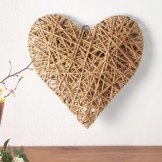
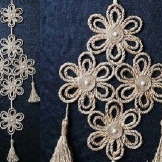
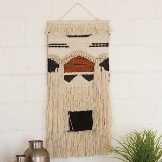
Materials and tools
The main materials for creating a panel are:
- corrugated cardboard;
- natural thick fabric or a piece of wallpaper;
- jute twine;
- polymer glue;
- scissors;
- glue gun.
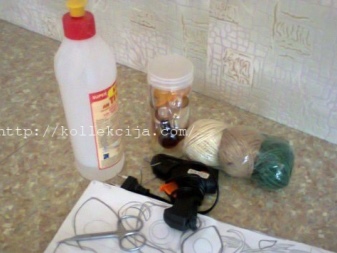
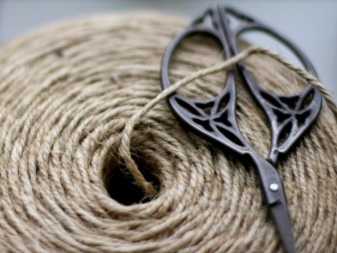
Also, depending on your idea, you can use additional decorative elements, such as:
- beads;
- lace braid;
- napkins for decoupage;
- grains (coffee, corn, sunflower);
- stones;
- coins;
- gold or silver acrylic paint (to create a patina effect);
- varnish (to consolidate the result when working with acrylic paints);
- stain (for coloring jute twine).
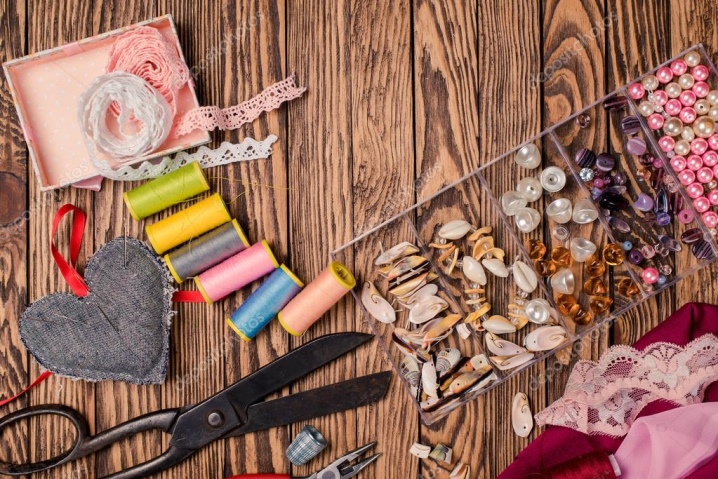
Execution technique
Making a panel with your own hands is a painstaking but creative work, the results of which may surprise you.
For the base, we need corrugated cardboard. It is necessary to cut out several shapes of the same shape from it and glue them one on top of the other. The shape can be any depending on your idea: a circle, an oval, a square, a rectangle, a polygon. If the cardboard is quite dense and voluminous, 2-3 layers are enough, if thin, it is better to insure yourself and make a base with 4-5 layers.
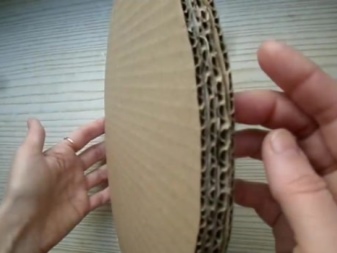
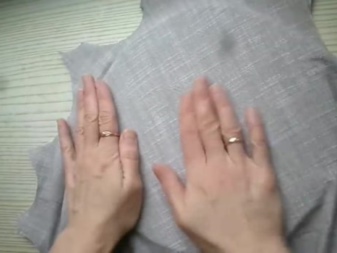
If the composition is simple and does not contain complex elements in execution, you can lay out the patterns directly on the fabric, having previously drawn a sketch of the future picture. If you have a complex picture, put a rigid transparent film on the sketch, circle the lines with glue and put jute on top. For convenience, you can make each element separately, and then stick all the components on the panel as an applique. To make a colorful ethnic-style panel, find a pattern of patterns that you like and transfer them to the base. These can be Indian, Eskimo or Egyptian ornaments.
To make the joints neat, it is better to cut the cut obliquely, keeping the scissors parallel to the table. The central cavities of jute monograms and curls can be decorated with any decor of your choice, for this you need to glue the decor before you start applying the pattern. If you are making a panel for the kitchen, you can use grains, dried flowers or cereals.
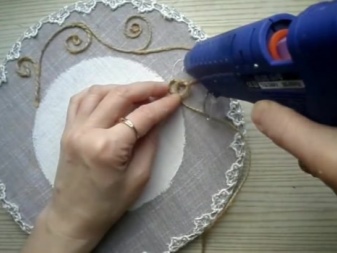
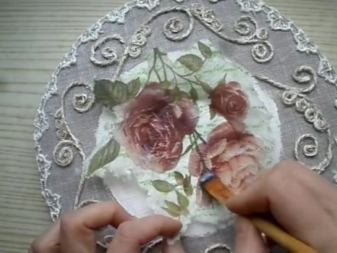
After the glue has set, remove the jute mosaic from the foil and glue each piece securely to the base with a glue gun. For a patina effect, apply silver or gold acrylic paint to the jute filigree, avoiding the sides.
To hang the panel on the wall, you can glue a loop or metal suspension on the back side.
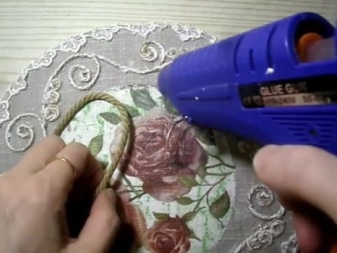
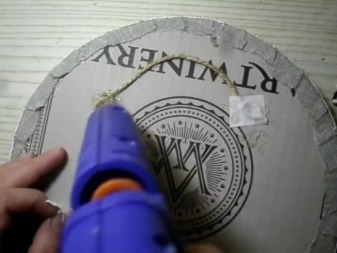
How to place in the interior?
In the kitchen, the panel will look favorably above the dining or work table, as well as next to the shelves for spices and kitchen utensils. A panel placed above the dining table will create a cozy atmosphere for a family dinner or friendly gatherings., and in the working area will become part of the overall composition and will cheer up the hostess while cooking.
In the living room, you can place the panel above the sofa or on any free wall.
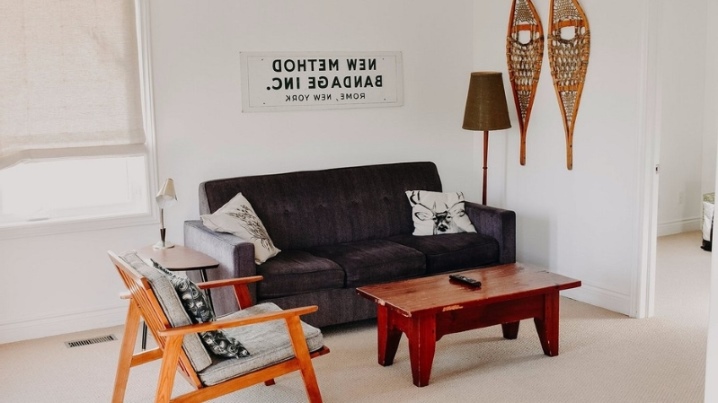
In the bedroom, the panel can be placed above the bed - so it will set the general message of the interior, play the role of the first violin. In your personal account, a jute picture will look good over your desk. You can also hang a modular panel in the hallway by placing it along the free wall of the corridor. A small image will look better above the door.
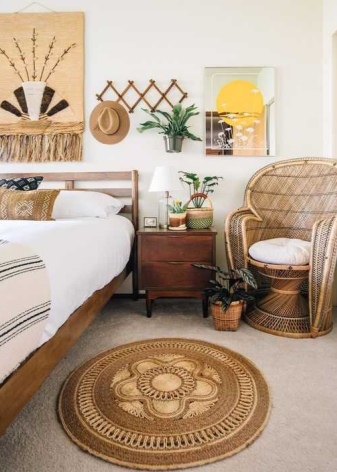
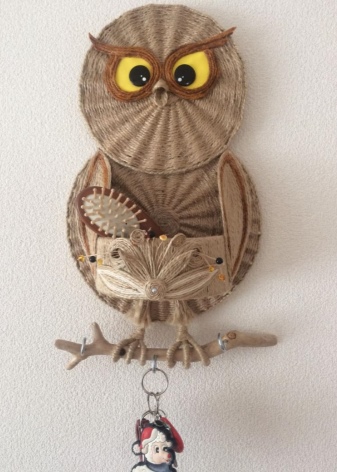
Beautiful examples
Let's take a look at a few unusual works for inspiration.
Here you can see a jute panel depicting a horse. It is made using the filigree technique, regular and bleached jute of the same thickness was used to create it. It can be used to decorate the interior in country style.
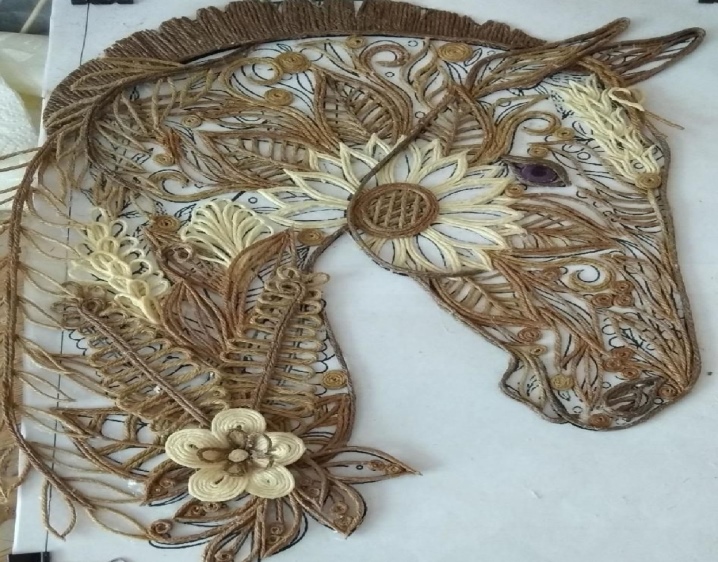
This peacock panel is ideal for decorating a bedroom or living room. It is also made using the filigree technique, but when creating it, translucent decorative stones for a vase were also used.
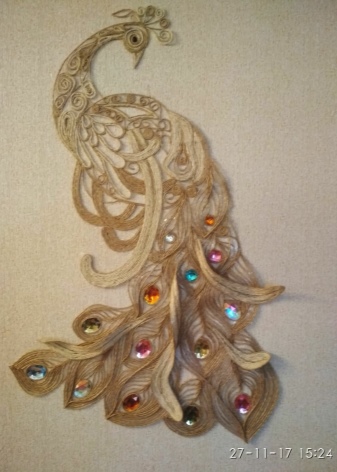
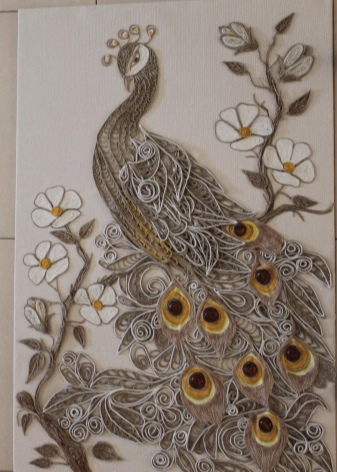
A small panel with flowers and monograms will perfectly fit into the ethnic interior. You can place it in any suitable place: in the living room, in the kitchen, in the hallway or in the bedroom.
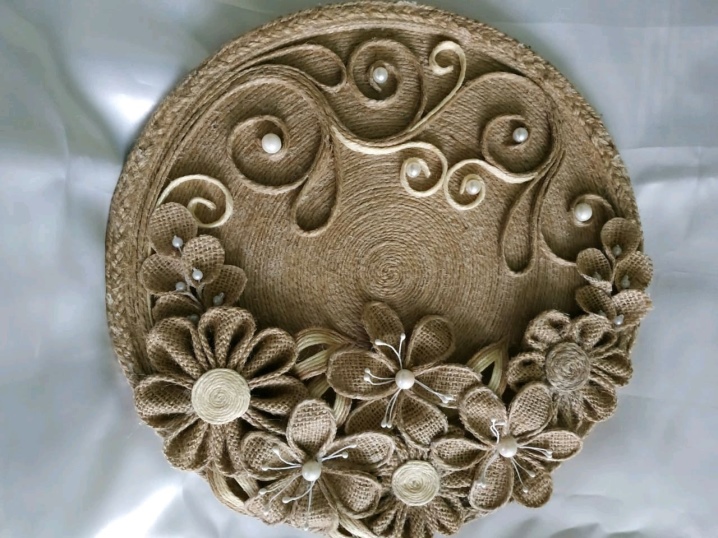
An unpretentious panel depicting a fairy-tale dragon is ideal for decorating a children's room.
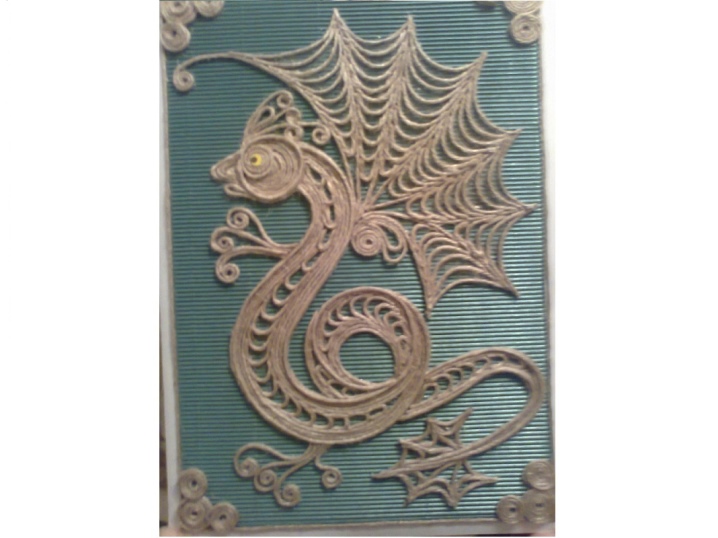
For how to make a jute panel with your own hands, see the next video.













The comment was sent successfully.